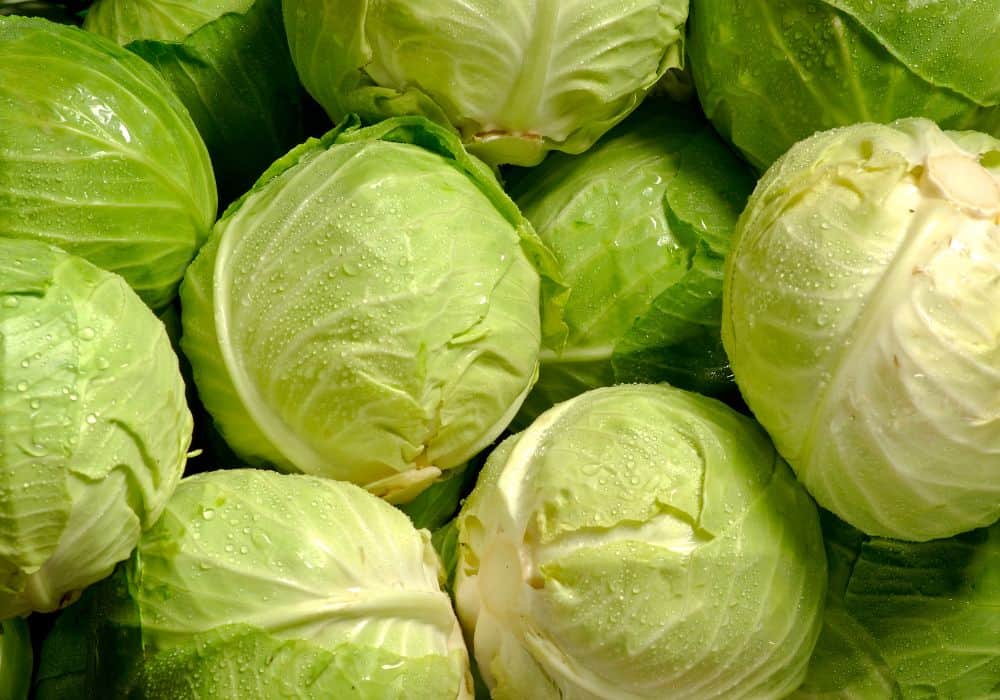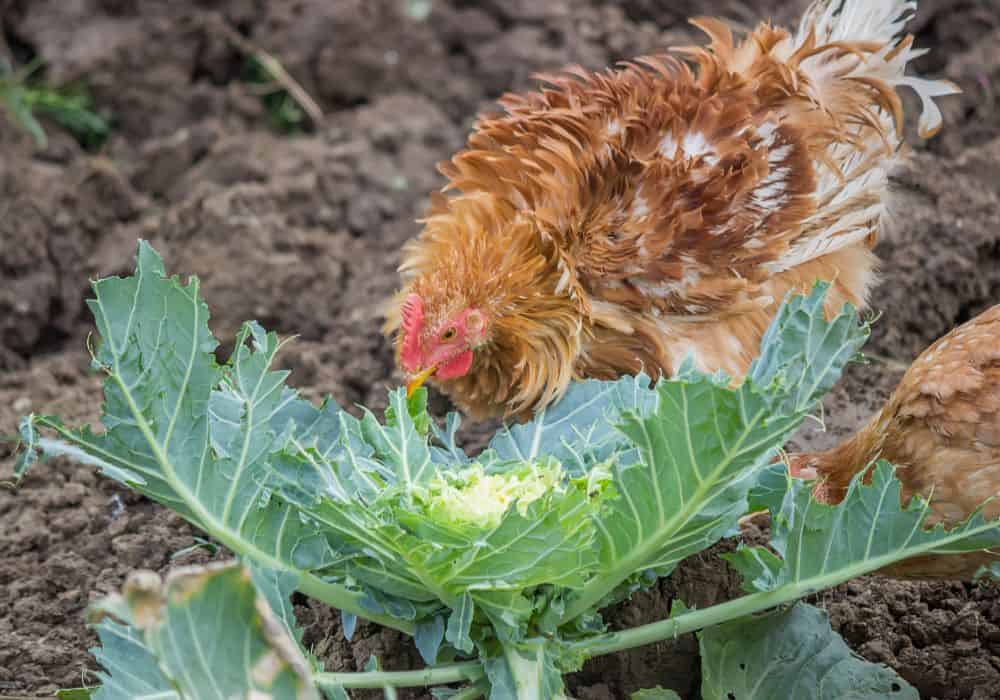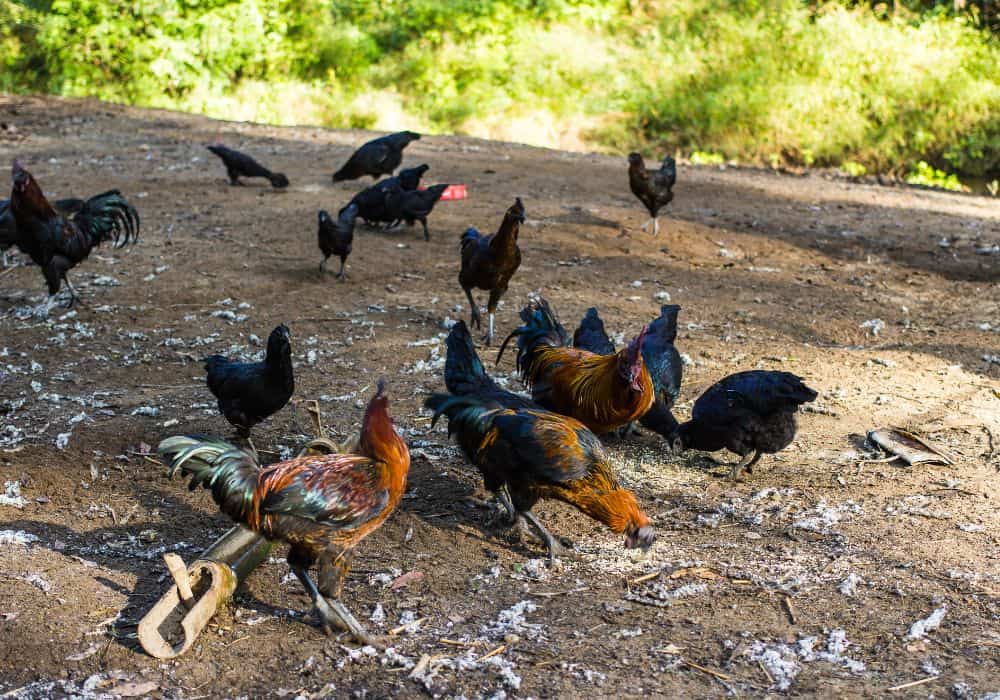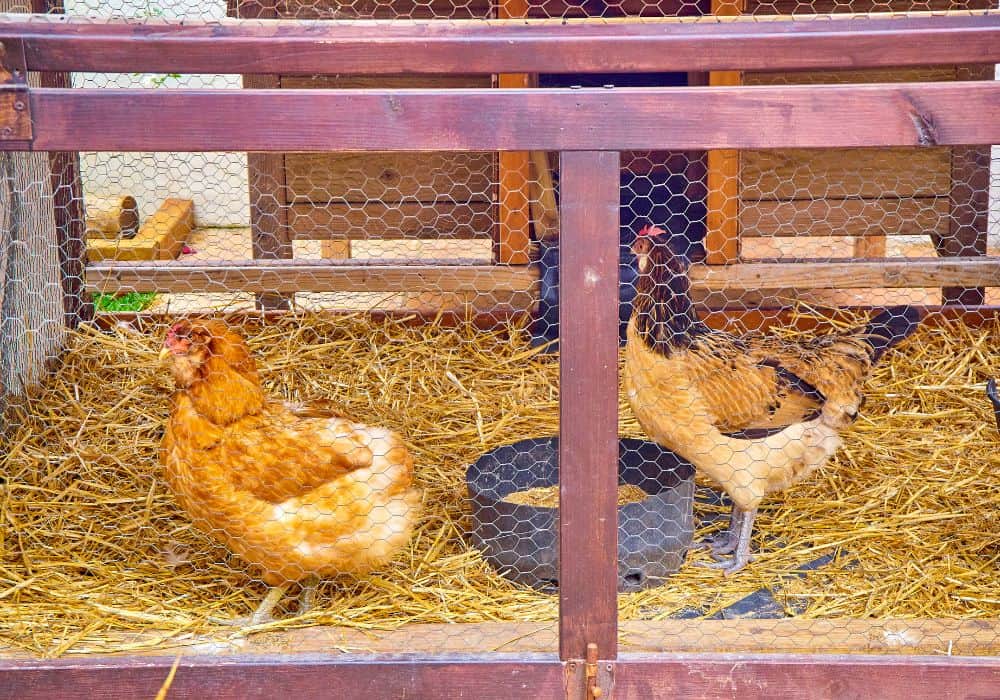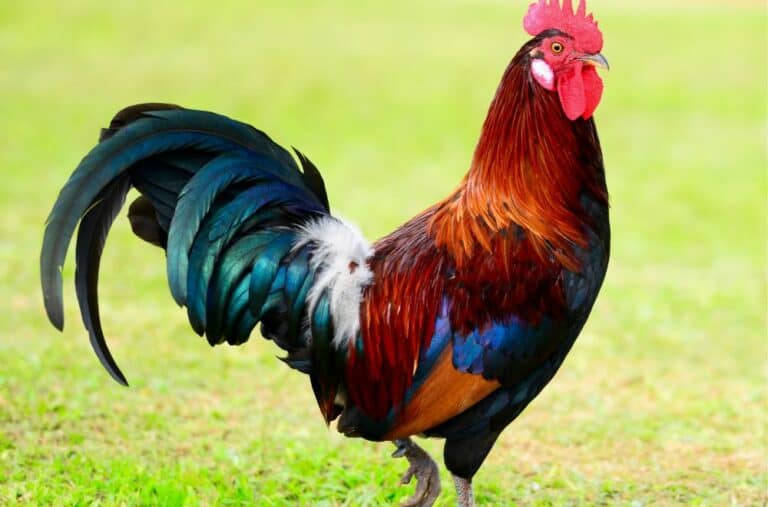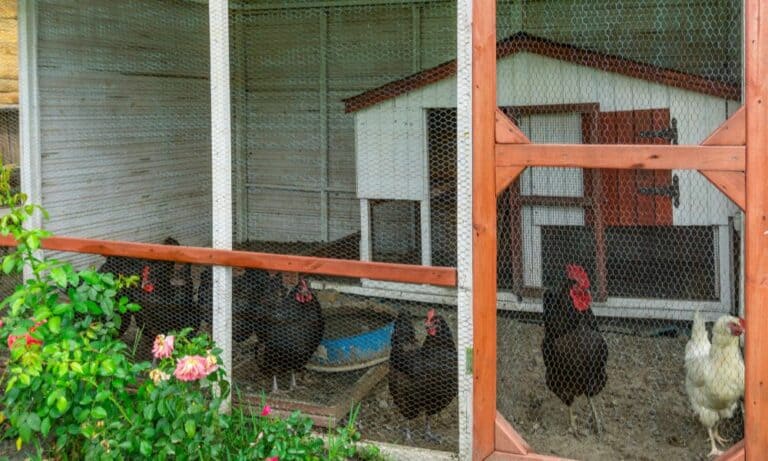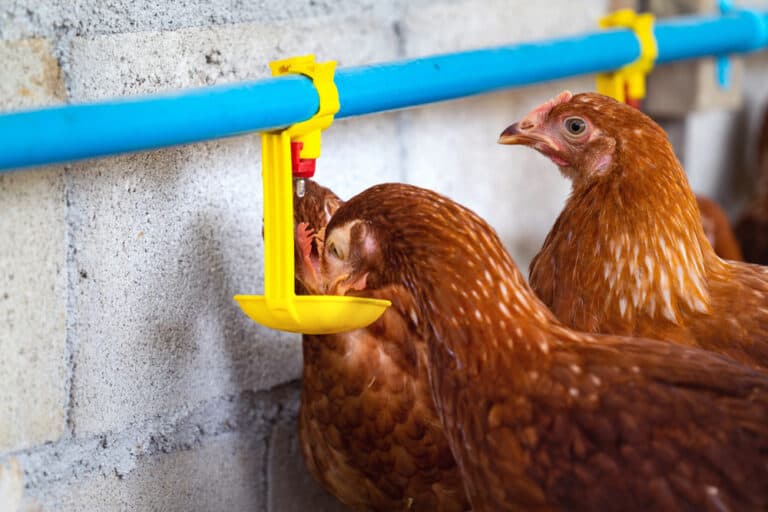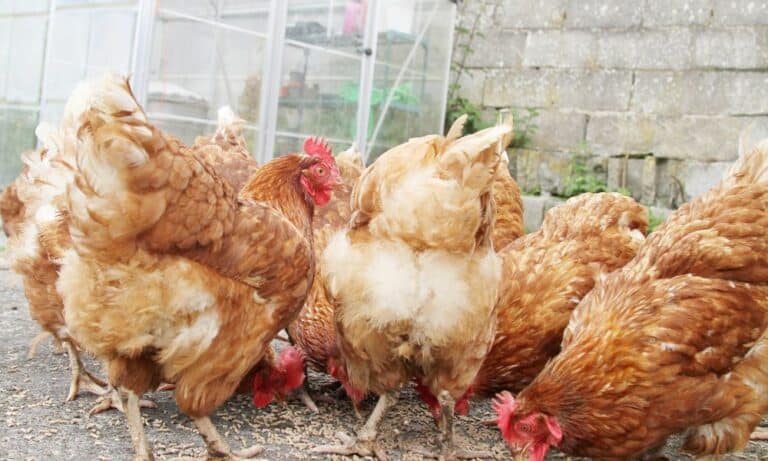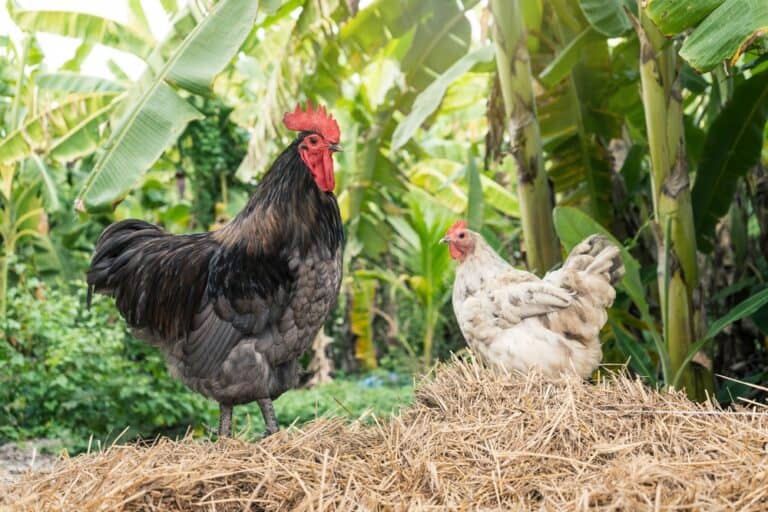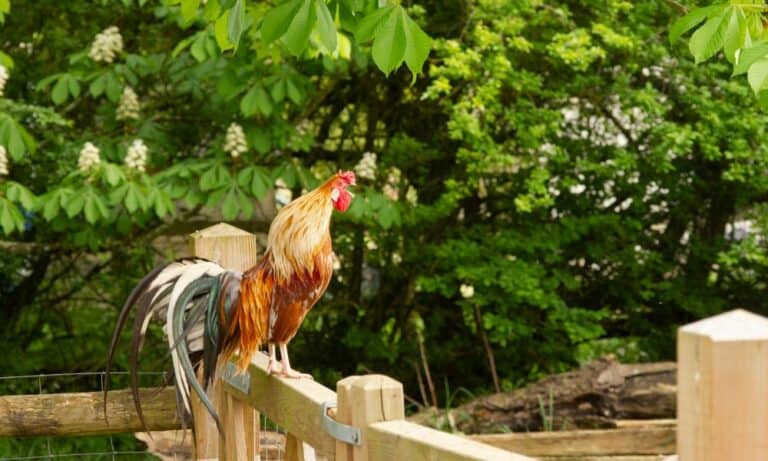To humans, cabbage is a humble vegetable that has no glamour and rarely gets the spotlight. It’s used as a side vegetable to bring out the hero ingredient of each dish. It’s simple and nutrient-dense but doesn’t necessarily have that wow factor for people.
But did you know that while cabbage is just so-so for us, it has won the hearts of many backyard chickens everywhere? Yes, cabbage is among the healthiest, safest veggies you can toss in the coop for your chickens to feast on. It has so many nutrients good for chickens. Plus, it’s tasty!
If you’ve ever asked yourself, “Can chickens eat cabbage?” this guide is for you. We’ll be taking you through the many health benefits cabbage has for chickens, as well as how to feed it to your beloved flock. Keep reading to learn more.
Cabbage is Very Safe for Chickens to Eat
Some of the best snacks you can give your chickens outside of their regular feed include green, leafy vegetables. While some chickens love kale, lettuce, and spinach, others will prefer the likes of Swiss chard or broccoli.
But one vegetable that is a universally yummy treat that most chicken breeds enjoy is cabbage. Not only is it delicious and refreshing, but it’s also safe for any chicken to munch on.
Unlike some plant-based snacks like avocados and tomatoes, there are no poisonous parts of cabbage. You can toss your chickens the entire head of cabbage, and they’ll safely eat every bit of it. Granted, they’ll have a hard time chewing the stems and the core, but they’re not toxic.
While green cabbage is the most popular among the types of cabbage, there are a bunch of others that are good for your chickens, too. These include red cabbage (which has more vitamin C than other cabbages), Brussels sprouts, and even bok choy!
Cabbage is a snack that chickens love to share with their flock. If you were to toss a whole bunch of it into the coop, your chickens will likely crowd around it to get their share of this yummy veggie.
Check out how much chickens love cabbage through this quick video. You can see how excited they are to get their hands (or beaks, rather) on some cabbage; they’re even pushing their way to the coop’s fencing to get a bite!
Some Nutritional Benefits of Cabbage for Chickens
It isn’t new information to anyone that cabbage is packed with vitamins and minerals, such as vitamin A, riboflavin, vitamin C, potassium, folate, phosphorus, zinc, magnesium, and many more. That means cabbage has plenty of health benefits to offer not just for people, but chickens too.
But what does this cruciferous do for chickens in particular? Check out five of the many health benefits your backyard chickens can get from cabbage:
1. Potassium for high-quality eggs
Potassium is one of those minerals that are essential for the health and byproducts of a chicken. This electrolyte helps regulate a healthy amount of fluid in their bodies, allowing them to stay hydrated as they work and run around on the farm.
It’s also a must when it comes to laying high-quality eggs. Hens that don’t have enough potassium in their system sometimes see a decline in egg production. And when they do get lucky enough to lay eggs, they may have an abnormal weight and shell thickness.
Cabbage has an incredibly high amount of potassium. There’s 170 mg of this electrolyte in 100 grams of cabbage. That makes it an excellent source of potassium for hens.
2. Antioxidants to defend against free radical damage
Factors like pollution in urban areas and high food intake can leave chickens susceptible to free radical damage. This can weaken their bodies’ cells and cause health issues to their organs. To prevent this from happening, they need to eat foods rich in antioxidants.
Cabbage contains high amounts of polyphenols—power antioxidants that neutralize free radicals and keep them from harming your chickens’ bodies.
This vegetable also has vitamin C, another antioxidant that is known for boosting the immune systems of chickens. This is pertinent to keep the spread of disease thanks to pathogens in the chicken coops at bay.
3. Vitamin B6 for healthy growth of chicks
Growing chicks are often put on a protein-rich diet to aid in their overall development. This big intake of protein requires them to have adequate amounts of vitamin B6, which breaks down amino acids in the proteins so they can be distributed throughout the body.
Aside from that, vitamin B6 is important for maintaining a healthy nervous system. If a chick is deficient in vitamin B6 in its growing years, it may end up with nervous behavior such as jerky legs and flapping its wings too much. In severe cases, their legs can end up crippled later on.
4. Dietary fiber to maintain digestive health
There are about 2.5 grams of fiber in every 100 grams of cabbage. That makes it an amazing source of dietary fiber, which is key in improving gut health for chickens prone to digestive issues like diarrhea and bloating. It also helps manage bowel movements by adding bulk to their droppings.
5. Low-calorie and mostly water
Lastly, cabbage has a very high water content and is low in calories. It’s a fantastic treat to give your chickens in the summer when it’s extra hot and they have to stay hydrated all day. To make it even more refreshing, try serving it to the flock fresh from the refrigerator.
Its low-calorie content, on the other hand, means you don’t have to worry about your chickens gaining too much weight even if they accidentally overeat cabbage.
Remember, Cabbage is Only a Snack Given in Moderation
Even if cabbage contains tons of good vitamins and minerals, it doesn’t contain all the essential nutrients needed daily. So, while it’s a healthy, safe snack to eat, it should be fed to chickens in moderation.
Cabbage is considered a snack only for chickens, not a meal. Snacks only make up 10% of a chicken’s diet. The remaining 90% should always be their regular chicken feed.
Of course, that 10% shouldn’t be solely cabbage either. You should diversify and treat your flock to other nutritious snacks too, such as lettuce, watermelon, cucumber, pumpkins, and more. Chickens also love grains like wheat and oats.
How to Feed Chickens Cabbage as a Treat
Before feeding cabbage to your chickens, always make sure you thoroughly wash the leaves. Some grocery stores spray vegetables with pesticides. You don’t want your chickens eating any of those dangerous toxins, so run them under running water for a minute or two.
Now that your cabbage is properly cleaned, you’re ready to prepare it for your chickens. There are three ways we recommend doing this:
1. Cooked and chopped up
The first way is to cook the cabbage. This softens up the leaves and makes it easier for your chickens to chew and digest. You can cook cabbage by boiling it or giving it a quick sautee. Just make sure it doesn’t have additional seasoning and salt.
To make it easier for your chickens to nibble on, you might also want to chop up the cooked cabbage and put it on a tray for them to eat. This is a terrific method to feed it to baby chicks or bantam birds that can’t eat huge leaves.
2. Uncooked and refrigerated
You can also serve cabbage to your chickens when it’s uncooked. The best way to do it is to refrigerate the entire head of cabbage, take it out after a few hours, and toss the whole thing to the coops.
Shredding the cold cabbage is also a good idea. Either way, your chickens will clamor all over the cabbage to try and take a cool, refreshing peck!
3. Dangling by a string for fun
If you want an entertaining way to feed cabbage to your chickens, try tying it up with string and dangling it over their heads. Chickens will try and fly to reach their favorite snack. This is a great way to get them going if they look bored on the farm and have low energy levels.
Conclusion
Cabbage is one of the safest vegetables you can give to your chickens as a treat. It’s rich in so many vitamins and minerals, such as vitamin C, potassium, vitamin B6, riboflavin, and more. Not only are these great for your chickens’ health, but they boost egg quality for your hens as well.
You can experiment with the different ways you can serve cabbage to your chickens. Whether you want to go simple with cooked and sliced cabbage or try something fun like hanging cabbage, your chickens will be very happy to nibble on this tried and tested veggie as a snack.
Just make sure to give them cabbage (as well as other fruit and veggie snacks) in moderation. Provide them with a balanced diet of commercial chicken feed and a few vegetables here and there, and you’ll be raising a flock of happy, healthy birds.

